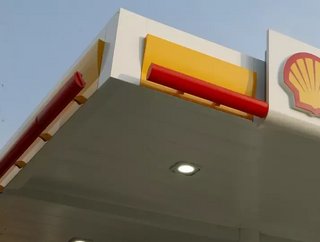Shell wants global policy on emissions as ruling appealed

Shell believes it has been singled out and wants to see greater global collaboration on climate change after it appealed the Dutch court ruling that stated it must reduce its net carbon emissions by 45% by 2030 compared to 2019 levels.
The oil major said it wants to accelerate its Powering Progress strategy, published in April, to become a net-zero emissions energy business by 2050, in step with society’s progress towards the goal of the Paris Agreement on climate change, and has set its own short- and medium-term targets for cutting emissions.
“We agree urgent action is needed and we will accelerate our transition to net zero,” said Royal Dutch Shell Chief Executive, Ben van Beurden. “But we will appeal because a court judgment, against a single company, is not effective. What is needed is clear, ambitious policies that will drive fundamental change across the whole energy system. Climate change is a challenge that requires both urgent action and an approach that is global, collaborative and encourages coordination between all parties.”
In May, Shell became the first energy company to put its energy transition strategy to a vote of shareholders at its AGM, securing 89% support. Shell will continue to give investors an annual vote on its progress in delivering on its strategy.
Shell has set out its intention to reduce both the emissions from its own operations, referred to as Scopes 1 and 2, and those produced when customers use the energy products it sells. These Scope 3 emissions account for over 90% of Shell’s emissions.
Shell has already set out a number of actions to reduce Scope 1 and 2 emissions through a combination of energy efficiency improvements, the elimination of routine flaring, carbon capture and storage technology, working with suppliers to use renewable electricity in facilities and concentrating its global refining portfolio from 13 Shell-controlled sites in 2019 into five Energy and Chemicals parks by 2030.
Earlier this month, Shell Deutschland reached an agreement with Alcmene GmbH (part of the Liwathon Group) for the sale of its non-operated 37.5% shareholding in the Germany PCK Schwedt Refinery.
IEA: clean energy accounts for only 2% of spends
While governments worldwide are deploying an unprecedented amount of fiscal support aimed at stabilising and rebuilding their economies following the pandemic, only about 2% of US$16 trillion spending has been allocated to clean energy measures, according to new analysis from the International Energy Agency.
It notes the sums of public and private money being mobilised worldwide by recovery plans fall well short of what is needed to reach international climate goals. These shortfalls are particularly pronounced in emerging and developing economies, many of which face particular financing challenges.
“Since the Covid-19 crisis erupted, many governments may have talked about the importance of building back better for a cleaner future, but many of them are yet to put their money where their mouth is. Despite increased climate ambitions, the amount of economic recovery funds being spent on clean energy is just a small sliver of the total,” said Fatih Birol, the IEA Executive Director.
Not only is clean energy investment still far from what’s needed to put the world on a path to reaching net-zero emissions by mid-century, it’s not even enough to prevent global emissions from surging to a new record, he added.






